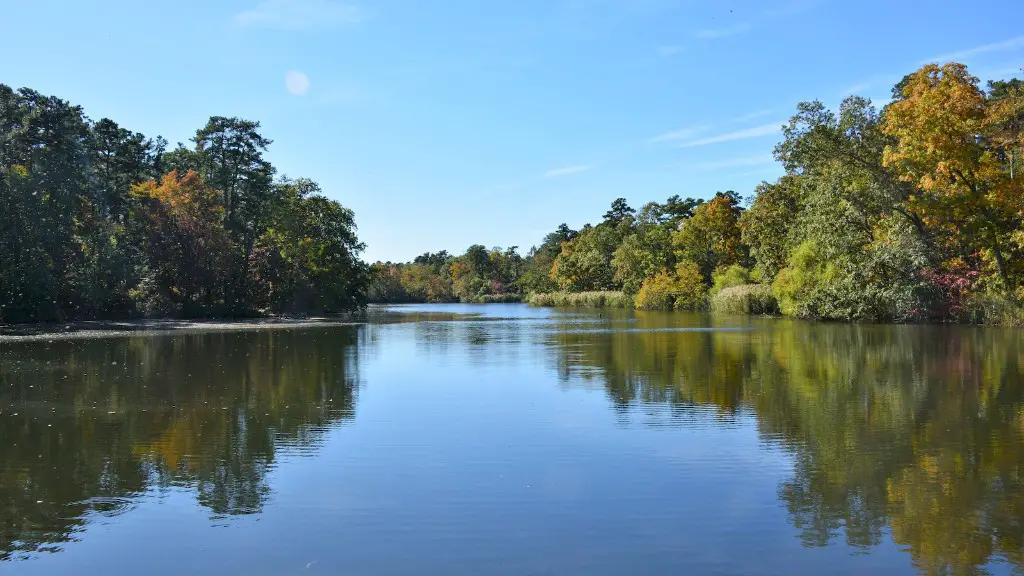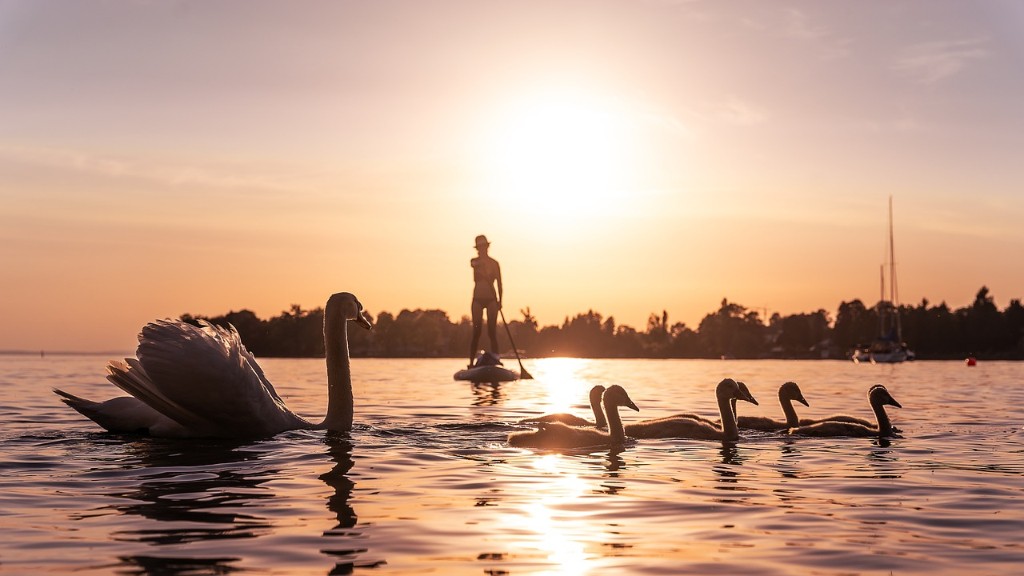Fish from Lake Superior has been a popular food source for generations in Northern Minnesota and Wisconsin. The lake is one of the largest in the world and is a part of the Great Lakes system. In recent years, authorities have flagged the lake as an area of concern due to rising levels of contaminants in the fish and in the water. So, should you eat fish from Lake Superior?
The Minnesota Department of Health has found traces of pollutants and heavy metals in the fish caught in the lake, raising questions about the safety of consuming them. The most commonly reported contaminants are PCBs and mercury, which have been linked to health risks in humans. The levels of these contaminants have been generally decreasing in recent years, but they have not yet reached safe limits.
Expert analysis is still ongoing to understand potential risks, but experts agree that the general consensus is that Lake Superior fish should be eaten in moderation. For instance, the children, pregnant, and nursing mothers are advised to avoid eating them altogether. They are also warned that if they do choose to eat the fish, then strict guidelines should be followed such as avoiding large, predatory fish and limiting intake to one meal a week.
On the other hand, freshwater fish are generally thought to be healthier than their saltwater counterparts because they contain less contamination from the ocean waters. Although this is not a hard and fast rule, as there are still potential contamination risks, many Minnesotans have long held onto the belief that the fresh fish of Lake Superior are safe to consume.
As a result, local fishing and eating habits have changed, with a greater emphasis on smaller, younger, and more nutrient-rich fish like the shallow-dwelling Alewife. The locals call these “ forage fish”, and they are preferable because they are lower on the food chain and thus tend to contain lower levels of pollutants. What’s more, these fish are high in omega-3 fatty acids and other beneficial nutrients.
Despite this, there is still a degree of uncertainty about the safety of consuming these fish. It is best to consult with a health professional and relevant authorities before indulging in large amounts of Lake Superior fish.
PAHs and Microplastics
While PCBs and mercury are the primary contaminants of concern in Lake Superior fish, they are not the only ones. Scientists have also reported elevated PAH (Polycyclic Aromatic Hydrocarbons) levels in fish tissues, which can be caused by a variety of sources, including burning fossil fuels. Microplastics have also been found in Lake Superior fish, but the risks associated with their consumption are still largely unknown.
Ultimately, PAHs and microplastics pose potential health risks, but the extent to which it can affect humans is still unclear. As such, it is recommended that Lake Superior fish should only be consumed in moderation to minimize any potential health risks.
Regulation
The state of Minnesota has imposed new regulations on anglers, limiting the size, species, and catch limits of certain fish. These regulations are intended to reduce overfishing and ensure the sustainability of the fish population in the lake. In addition, fishing quotas have been reduced to prevent overfishing and to ensure that the fish population is able to recover from the effects of contamination.
It is also important to note that consumption advisories are issued on a regular basis to ensure that local residents stay informed of which fish are safe to eat. For instance, consumption advisories will warn the public when a particular species of fish is not safe to eat due to high levels of contamination. It is important to be aware of these advisories so that you can make informed decisions about what fish to eat.
The Benefits of Eating Fish
Eating locally sourced fish can have numerous benefits. Fish are an excellent source of protein and other essential nutrients, such as omega-3 fatty acids, and can be a healthier alternative to red meat. Additionally, eating locally sourced fish can help support the local economy, as well as provide numerous environmental benefits such as increased biodiversity, more efficient energy use, and renewed vitality of Lake Superior.
What’s more, consuming locally sourced fish helps to reduce your carbon footprint and provides a more sustainable way of meeting local dietary needs. So, while it is important to remain informed of the potential risks associated with consuming contaminated fish from Lake Superior, it can still be a healthy and sustainable part of your diet.
The Risk of Invasive Species
In addition to potential contamination risks, invasive species are another major concern in the lake. Invasive species, such as the zebra mussel and spiny water flea, can severely disrupt the natural food chain, which has a detrimental effect on local fisheries. They can also be a nuisance to recreational activities, such as boating and swimming. As such, it is important to clean and properly dispose of any fishing gear that has been in contact with Lake Superior, as this can help reduce the risk of introducing invasive species into the lake.
Management and Conservation
Moving forward, local and state authorities are continuing to monitor the lake’s ecology and contaminants, working to ensure that Lake Superior is a safe and healthy environment for current and future generations. As part of this effort, various initiatives are underway such as wetlands restoration projects and fish stocking programs, which aim to support the local fish population and restore the natural balance of the lake’s ecosystem.
In addition, the state of Minnesota and the Great Lakes Fishery Commission are collaborating to create new management plans and regulations that are designed to promote responsible fishing and to ensure that fishing activities do not damage the health of the lake. These initiatives are ongoing, and they will hopefully ensure that Lake Superior remains one of the premiere recreational and ecological resources of the region.
Conclusion
In conclusion, consuming fish from Lake Superior is not without its risks. However, with due caution, it can still be part of a healthy and sustainable diet. It is recommended that those who are interested in eating the local fish should consult with a health professional and pay attention to the latest fishing and consumption regulations. Additionally, support local initiatives that are designed to help preserve the lake’s health and restore its native fish population.




